Reviewed by Ashley (Brendle) Rey, MBA
California MBA students and graduates may find their own alma mater offers the business incubator or accelerator best equipped to foster their big entrepreneurial ideas.
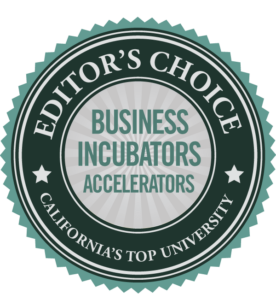 In recent years, universities have gotten in on the business incubator and accelerator game. UC Berkeley’s SkyDeck, for example, funds around 40 startups per year with $200,000 each and assists them through product strategizing, team-building, and making customer introductions through the university’s broad network of contacts and alumni. Applicants don’t even have to be Berkeley students, although students often find themselves engaged with SkyDeck cohorts.
In recent years, universities have gotten in on the business incubator and accelerator game. UC Berkeley’s SkyDeck, for example, funds around 40 startups per year with $200,000 each and assists them through product strategizing, team-building, and making customer introductions through the university’s broad network of contacts and alumni. Applicants don’t even have to be Berkeley students, although students often find themselves engaged with SkyDeck cohorts.
Similarly, Startup UCLA has a summer accelerator program for early stage businesses started by UCLA students and alumni. While the stipends are low compared to investments that come from private accelerators, the accessibility and zero equity stake requirement can make the program appealing.
In other cases, these are technology-specific programs bootstrapped out of related departments, such as biotech, artificial intelligence, blockchain, or clean tech.
Many business schools have put together their own programs, like UCLA Anderson’s Venture Accelerator. Founders can apply to a two-month summer program that will foster brainstorming sessions and help them explore markets, then move on to a more intensive five-month immersive program for startups at the commercializing and scaling phase. Both phases can take part in a showcase each fall that connects founders to prospective mentors and investors, tapping into the extensive Anderson Alumni Network for resources.
University-Based Accelerators and Incubators Deliver the Help You Need from People You Know
There can be a lot to recommend about California’s university-based incubator and accelerator programs, particularly if you are graduating from an MBA program at that university.

For starters, you have a pre-baked contact network already on site through the various professors, students, and staff you met during your MBA. You already have the lay of the land and understand the philosophy and systems in place.
University-based accelerators and incubators can be attractive to founders who are interested in maintaining more control over their companies.
University programs are less likely to take an equity stake in your company. That leaves your ownership less diluted, and more open for further investment or more unitary control.
The University of California has already done the hard work of putting together a list of incubator and accelerator options delivered by UC schools, including collaborations such as the Cyclotron Road program.
Similarly, the Cal State system offers this central resource that allows you to select any individual campus within the system and find the entrepreneurial supports available there. Many of those include incubator or accelerator programs.
Like a lot of academic ventures, it can be a little bit of the Wild West when looking at university-run incubators and accelerators. Some are public/private partnerships. Some are cooperative efforts between departments, while others are maverick efforts by a single program. Some are time-tested and market-proven; others last for a few years until a visionary professor or administrator retires, and then evaporate.
Entrepreneurial supports from business schools can land on a sliding scale that ranges somewhere between free entry to a demo day and a vague shot at mentorship from interested alumni… all the way up to a full-blown incubator co-working program complete with access to major California VC firms. So it can be difficult to classify every single program from every single business school in the state as an accelerator or incubator in conventional terms.
Top Picks for the Best University-Based Business Incubators and Accelerators
What you’ll find here are the university-based options that have proven themselves with high start-up success rates. They have achieved that by providing the best entrepreneurial supports through one-on-one mentorship, generous seed capital, tailored guidance, strong alum networks, and they do it all with minimal equity requirements.
And every one of them is offered through California universities known for offering the most respected MBA programs in the country. One of them may very well be from the business school you’re attending, or one you plan to attend.
Stanford University Business Incubators and Accelerators
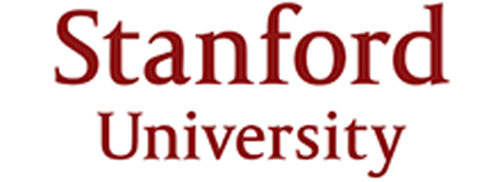
Graduate School of Business LEAD Incubator and Startup Accelerator | LISA

Length: 12 Weeks
Equity Requirement: None
Format: Online and in-person
Stage: Early-stage ventures
Website
- Entrepreneur and VC PODIUM X Speaker series for the latest in what is hot and what works
- A commercial and business model workshop to fine-tune your venture
- Bi-weekly pitch practice sessions plus a workshop on pitching with confidence to build your fundraising skills
- So far, the program has served more than 170 startups and seen multiple exits from alums
LEAD (Learn, Engage, Accelerate, Disrupt) is an online business program designed for mid- to senior-level professionals who want to expand their professional leadership skills and creative strategies outside of an MBA. LISA was created to fill a need among the graduates of that program to turn them into viable startups and launch those creative ideas as viable products. They select from among the LEAD cohort and offer 1:1 mentorship throughout the program. The programs virtual/hybrid ecosystem means you can participate from outside the United States, and the community of founders currently extends to 37 countries.
Seed Spark Program | Stanford Graduate School of Business

Length: 5 months
Equity Requirement: None, $150 program fee (collaborator requirements may vary)
Format: Online
Stage: Early-stage, with MVP (Minimum Viable Product) in place and business formally registered
Website
- Curriculum based on the GSB curriculum model that has powered up some of the most successful companies in Silicon Valley
- Relationship building with like-minded entrepreneurs helps build a peer network for life
- A pitch competition helps hone your ability to present your concepts and products smoothly and effectively
Stanford’s Seed program is a Graduate School of Business effort aimed at ending the cycle of global poverty. Seed Spark is the early-stage entrepreneurship part of that larger business-training initiative. Uniquely, the program collaborates with other incubators, accelerators, and organizations that are devoted to supporting new entrepreneurs. Admission is only granted through nomination by those collaborating organizations. Seed Spark offers 1:1 mentor feedback and peer support, assuring personalized attention from local business leaders as well as Stanford GSB faculty.
StartX: Stanford's Accelerator & Community

Length: 3-month (6-month for Student Entrepreneurship Residency)
Equity Requirement: None
Format: Variable, including onsite in Stanford Research Park
Stage: Concept through pre-seed up to Series A (product optimizing and market fit)
Website
- Offers three tracks for specific verticals in StartXMed, StartXAI, and StartXEnergy
- StartX has backed 165 companies valued at over $100 million and 18 valued at over $1 billion, for a total valuation of over $40 billion
- A 700-strong alumni network offers a ready-made customer base for many startups
- Laster-stage companies can take advantage of executive communities covering marketing, sales, scaling engineering, and hiring
StartX is billed as being more than an accelerator. It certainly has a reputation that goes beyond the garden-variety accelerator; with smash hit alums like OpenSea, LimeBike, and Patreon coming out of it over the past decades, it has a proven formula for success. That formula includes tailored mentorships, four or more per company, a tight-knit founder community that includes more than 150 exclusive events per year, and some $1.2 million in resources per startup that include office space, scholarship, and online earning resources. Open to Stanford students, alumni (including MBA graduates), and Stanford professors.
University of Southern California Business Incubator

Marshall Greif Center Incubator

Length: Flexible, up to 12 months
Equity Requirement: None
Format: Variable, including on-site
Stage: Early-stage
Website
- Open to founders with a connection to USC, including teams with current students, alumni, faculty, or staff
- Offers legal and financial assistance, as well as office space when needed
- Works with all university departments or external resources where value may be offered to incubator companies
- A one-year post-graduation invite back to the incubator to present lessons learned to benefits current attendees and get follow-up assistance
Rather than sticking to a standard curriculum and formal set of workshops and training, the Greif Incubator believes in selectivity in workshops and delivering continuity in personalized assistance to each team. You can expect to develop a unique plan, and then approach your startup in a unique way here. There’s nothing formulaic about this program. That gives breathing room to unique ideas and business models.
University of California – Berkeley Business Incubators and Accelerators
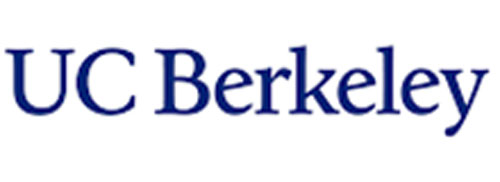
Berkeley SkyDeck

Length: 6 months
Equity Requirement: $5,000 flat fee or 1%
Format: Weekly and special events, primarily online
Stage: Pre-A, before product optimization and market fit
Website
- SkyDeck teams have raised over $2 billion, with 60 percent receiving funding and 17 total exits by acquisition so far
- Offers $200,000 in funding to each participant through the SkyDeck Venture Fund, a public-private partnership with big-name VC backing
- Selects 20 startups per cohort from Berkeley students, faculty, and alumni
- More than 1000 attendees at SkyDeck demo days make it a sure thing your idea will get in front of VC and angel investors
- Accepts all types of startups but has four specialized tracks available in bio, chips, air & space, and fintech & blockchain for more focused expertise
- A DEI committee assists in ensuring that the cohort is diverse and being served content equitably
SkyDeck is the birthplace of the Berkeley Acceleration Method (BAM), a set of expert-led workshops in critical practice areas, combined with advisor matching and one-on-one sessions for guidance and mentorship. Those advisors are drawn from industry rock stars, and they are far from the only important people you will meet. SkyDeck has an illustrious history and a rotating internship program drawn from Berkeley students, so you will meet both major C-level industry execs and the movers and shakers of tomorrow as well. The accelerator goes above and beyond in diversity and support for marginalized founders, offering more than six workshops specific to female founders.
Berkeley SkyDeck Pad 13 Incubator

Length: 4 months
Equity Requirement: None
Format: On-site
Stage: Early, idea stage
Website
- Receive office space, key advisors, and more than $750,000 in resource benefits from 70 partners
- Access to 50+ full SkyDeck workshops
- Open to pitch at the Pad-13 Pitch Competition, attended by cohort selection, the community, advisors, and angle investors
The success of SkyDeck as an accelerator created demand for a more incubator-oriented counterpart: Pad 13. Pad-13 startups have access to many of the same resources as SkyDeck cohorts, but there is no equity requirement. Pad 13 is a pipeline to the main SkyDeck accelerator for startups who aren’t advanced enough to receive the full benefit yet.
Haas LAUNCH

Length: 4 months
Equity Requirement: None
Format: On-site
Stage: Early, idea stage
Website
- Focuses on lean methodology, keeping your startup lean and mean… and profitable
- Awards up to $60,000 in prize money
- More than 250 companies have been accelerated with a total of $1.4 billion raised between them
- Pairs startups with expert mentors and world-class faculty members for guidance through both setbacks and successes
- Alumni have gone on to place in Y Combinator as well as rise to the top of Forbes 30 under 30 list
Billed as UC’s leading accelerator, this is a powerhouse program from one of the country’s leading business schools. That makes it a great fit for Haas students, but part of the magic of LAUNCH is that it is open to teams that have at least one student, faculty member, or alum from any school in the University of California system. That opens up the horizons for world-class expertise and backing from entrepreneurs with serial founding and deep operational experience. The accelerator culminates in a Pitch Day at which $60,000 in prize money is given out to the best startups.
CITRIS Foundry

Length: 12 months
Equity Requirement: None
Format: Hybrid, co-working space available at Berkeley, Davis, Davis Medical Center, Merced, and Santa Cruz
Stage: Prototype or proof-of-concept
Website
- IT Deep Tech Incubator, focused on top UC engineers, scientists, and researchers on the cutting edge of information technology
- Serves the UC campuses of Berkeley, Davis, Merced, and Santa Cruz
- Includes legal support, financial and funding guidance, access to research and prototyping facilities, and GO Engineer SolidWorks licensees and support
- Fall and spring cohort launches
- Self-paced format allows you to develop your ideas at your own pace and develop an engagement plan appropriate to your technology
- Up to $5,000 in AWS Activate credits are available
CITRIS (the Center for Information Technology Research in the Interest of Society) leverages the research strengths of four different major UC campuses to create technology to deal with the biggest challenges society faces today. The Foundry is their launchpad for the moonshot startups that will change the world. You’ll have help dealing with all the major challenges of bootstrapping a new tech business, from incorporation paperwork to workspace to banking access. Experts will advise you in IP strategy and crafting successful pitch decks for VC funding. You’ll get plugged in to the entrepreneurial ecosystem on each campus and have access to the elite CITRIS advisor network. Best of all, the program is free and has no equity requirement—other than to go out and change the world.
Free Ventures

Length: 1 semester
Equity Requirement: None
Format: Variable
Stage: Pre-seed
Website
- Boasts 90 alumni companies which have received a total of $170 million in follow-on capital from groups like KPCB, Y Combinator, and Spark
- Offers funds to reimburse costs of growing your company on campus plus fundraising assistance during and after the program
- Founders, investors, and industry experts offer guidance at weekly workshops
- Unique point person structure assigns one or two internal team members to your startup for the duration of the program
- Round robin mentorship sessions ensure you get equal exposure to a range of experts from the FreeV panel
Free Ventures lives up to the name, with zero fees or equity requirements. Aimed at student founders who are coming in without any resources, not only do you not pay or commit anything, but you will receive funding and assistance in fundraising from a wide range of angel and VC contacts. Founder-friendly legal and banking services through firms like SVB and Cooley can help you get the essential structure of your business in place, making this fast-paced accelerator more like an incubator in some respects. Companies have gone on to be acquired by such major players as Discord and Coinbase.
California State University – Fullerton Business Incubator
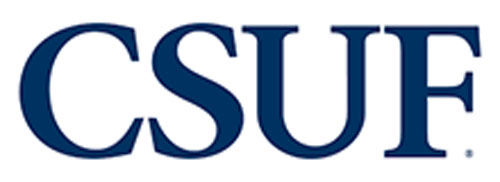
CSUF Startup Incubator | College of Business and Economics at CSUF

Length: 6 months
Equity Requirements: None, $5,000 program fee (Social Enterprise Launchpad is fully funded, with no cost to participants)
Format: Virtual
Stage: Early stage
Website
- Offers personalized one-on-one coaching in Lean Startup methodologies with candid guidance and feedback
- Taps into student consulting teams to assist with research into markets and business development
- The CSUF Startup Incubator Social Enterprise Launchpad is offered asynchronously and focuses on business planning in the startup of Social Enterprises
- Mentors are draw from almost 1,000 experienced entrepreneurs, attorneys, CPAs, bankers, and other business professionals
Drawing on decades of social enterprise, private sector, and classroom experience, the CSUF incubator has a deep well of documentation and knowledge to draw on to assist early-stage startups. Teams of three to six students under the direction of seasoned faculty members dive into industry research, customer development, and other business planning tasks as a virtual extension to your team in the crucial early days of your startup.
University of California – Davis Business Incubators
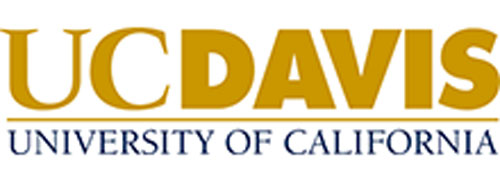
Venture Catalyst Startup Incubator Network

Length: Variable
Equity Requirements: Varies; fees apply
Format: Variable
Stage: Early
Website
- Close collaboration with UC Davis stakeholders and resources like the Institute for innovation and Entrepreneurship helps participants make connections with expert resources
- Offers shared office space as well as lab access for technical research and development
- Has assisted companies in therapeutics, agriculture, food processing, and medical devices
- The DARTS program offers discounted access to research and development services and state-of-the-art campus tech like NMR, genomic analysis, mass spectrometry, and more
The Venture Catalyst unit at UC Davis is unique in that it offers a whole network of thematically-oriented business incubators: DRIVE, the Distributed Research Incubation & Venture Engine exist to help campus entrepreneurs turning Davis technology breakthroughs into viable commercial products. That includes MentorNet advisors for experienced business leadership advice, LegalNet assistance with no-cost incorporation and legal consultation, grant workshops, competitive analysis, and pitch coaching to help you hone your business presentations and funding requests.
University of California – Riverside Business Accelerator
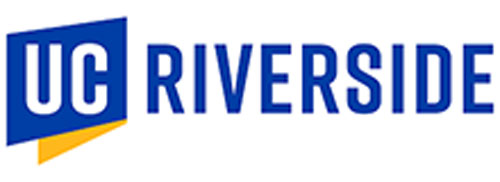
Innovation Hub

Length: Variable
Equity Requirements: Variable
Format: Variable
Stage: MVP (Minimum Viable Product), secured IP, and identified business model
Website
- The affiliated Opportunity Gateway Program offers mentorship in securing capital and accessing markets
- Every program is custom crafted to the business and market in question
- Specialized co-working spaces, maker labs, and innovation centers offer both tools and collaboration to fire up your development
If you are looking for an inland SoCal hub for business acceleration, UC Riverside has got you covered. The Innovation Hub serves as a connective nexus for entrepreneurial organizations developing a support ecosystem. The aim is to smooth the access to capital and funding opportunities, amplify regional programs and resources, promote entrepreneurial activities, and to track and report on the progress of startups in the area. With the assistance of the Small Business Innovation Research and Small Business Technology Transfer Programs and regional partners, the Innovation Hub is both a resource for startup information and a matchmaker for specialist incubator programs throughout the region.
University of California – Irvine Business Incubator
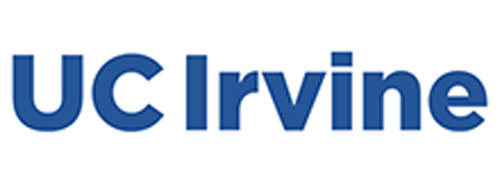
TechPortal
Length: Minimum 6 months, maximum 2 years
Equity Requirements: None, $450 month lease plus facility fees
Format: On-site
Stage: Funded
Website
- Companies based on UC technology or founded by UCI faculty, staff, or students are eligible
- Access to facilities like a bio-organic clean room, nano systems research facility, microscopy center, and the Microsemi Innovation Lab gives your startup big capabilities without big capital costs
Run by Irvine’s California Institute for Telecommunications and Information Technology (CALIT2), TechPortal hosts up to seven companies at a time in 1,500 square feet of space with all the collaborative and network possibilities that opens up. CALIT2 is a world-class multidisciplinary research institute, with the on-site expertise and facilities to match. The mentoring, programs, and expertise to help get your company set up on UC IP is invaluable.
University of California - Los Angeles Business Incubators and Accelerators
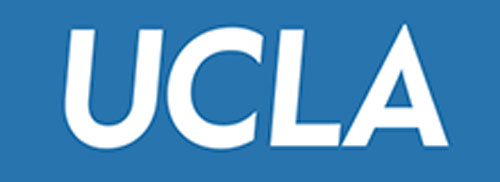
CNSI Magnify Incubator

Length: 6 months, minimum
Equity Requirements: Per IP licensing agreement
Format: On-site
Stage: Funded
Website
- Housed in the California NanoSystems Institute with multiple specialized technology cores
- Primarily focused on life sciences, clean energy, and advanced materials startups
- Pitch refining sessions include both Magnify’s management team and Pasadena Small Business Development Center experts
- Scientific lab space, office areas, and BSL-2 tissue culture rooms offer space for both tech and business development
- Access capital connections, take advantage of group purchasing, find partnerships, and get mentorship from experts
Located at Ground Zero of UCLA’s tech space, the Court of Sciences, Magnify offers unparalleled access to facilities for forging new breakthroughs. A relationship to the university must exist, either with a team member who is a UCLA faculty member, student, staff, or recent alum, or the company has a research agreement or IP license from the school. Portfolio companies include those focused on sustainability, diagnostics, medical devises, and pharmaceuticals.
Startup UCLA Summer Accelerator

Length: Ten weeks
Equity Requirements: None
Format: Hybrid
Stage: Early, MVP (Minimum Viable Product)
Website
- Comes with customized coaching, mentorship, legal services, and networking as well as connections to UCLA’s entrepreneurial community
- Each team receives a $5,000 stipend and an additional $5,000 in AWS credits
- A 3 day/2 night trip to Silicon Valley for up to 2 team members is included
- Working alongside eight or nine other startups fosters connections and builds collaboration skills
- Co-working space available
- Cohorts have raised over $100 million and led to four acquisitions since 2012
Startup UCLA delivers an intense summer session with their annual summer accelerator for a head start on your business dreams. At least half of each team must be current UCLA students or recent alumni. The ten-week Accelerator program is at the heart of the Startup UCLA mission, and it delivers best practices and guidance in technology, design, and entrepreneurship. An on-site visit to Silicon Valley helps you make connections in the Bay Area that you might not otherwise develop studying in LA. And since it’s a fast-paced summer program, you can shepherd your ideas to launch without sacrificing class time.
Anderson Venture Accelerator

Length: 2 months/5 months
Equity Requirements: None, $2,000 program fee for non-UCLA Anderson students
Format: Hybrid
Stage: Pre-seed
Website
- A customized and immersive curriculum caters to each cohort individually
- A deep network of Anderson alums and more than 200 industry mentors are on tap to offer expert advice covering almost any industry
- Co-working space, software credits, and access to professional service providers comes standard
- More than half of founders come from underrepresented groups
- Of more than 340 companies accelerated, over $300 million in funding has been raised and 9 have been acquired
- Nearly 90 percent of programs that proceed through the program continue to scale successfully after graduation
Anderson is one of the premier business schools on the West Coast, and their accelerator is just as well-planned as you would expect from a T-20 program. The Anderson Venture accelerator comes in three pieces: Activate, a two-month summer program for founders at the creative stage exploring market fits; Accelerate, a five-month immersive that includes the Activate component plus advisory sessions, mentorship pairings, and presentation skills development; and Showcase, a two-month intensive for both cohorts that connects founders to investors and culminates in a demo day to pitch your ideas. Together, the three represent a full incubation cycle that you can ride from ideation to funding explosion.
Startup-in-a-Box

Length: Not stated
Equity Requirements: Not stated
Format: Virtual
Stage: Variable
Website
- SIAB works with founders in various stages of starting up, from invention to prototyping to scaling
- Resources range from HR professionals to lawyers to realtors
- Offers support for incorporation, banking, compliance, prototyping, and finding insurance
Created to lower the barrier to entry for UCLA entrepreneurs, Startup-in-a-Box is run by the university’s Technology Development Group. The program is available to all UCLA faculty, staff, postdocs, and graduate students, as well as outside entrepreneurs who are licensing intellectual property from the university. TDG pre-vets partners across a range of service areas and provides participants with introductions that gets them connected to experts in the areas they most need assistance. In addition, the program is closely integrated with other entrepreneurial supports at the university, expanding the chances you can find resources with expertise in the areas you most need help.
University of California - San Diego Business Incubator
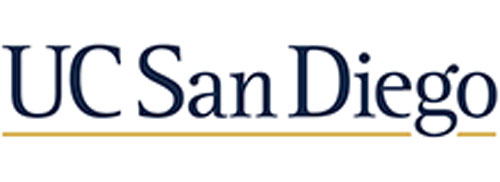
The Basement - Blackstone Launchpad Incubator

Length: 12 months
Equity Requirements: Not stated
Format: Hybrid
Stage: Very early
Website
- Offers access to The Basement makerspace, co-working facilities, and Prototyping Lab
- A network of subject-matter experts are on tap to answer questions and offer guidance throughout
- College credits may be available for your participation
- Opens access to curated funding sources and a tailored in-person and online curriculum plan
- Quarterly pitch prep sessions lead to the year-end showcase for the program that puts your idea in front of potential investors
Open to any UCSD graduate or undergraduate in good academic standing with a startup, social innovation, or even just a small business idea they are passionate about, this program puts a full incubator structure around the suite of services offered by the UCSD Basement startup support network. From legal consultations over IP and trademark to low-cost AWS credits to priority access to the on-site prototyping lab, you can find everything you need to take your idea from theory to reality.
California State University - Monterey Bay Business Incubator
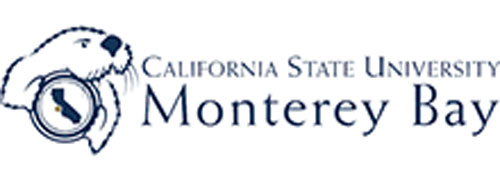
Business Forge

Length: Not stated
Equity Requirements: Not stated
Format: Not stated
Stage: Not stated
Website
- Connects emerging entrepreneurs with experienced professionals for mentorships, insights, and strategic guidance
- Meeting topics for cohorts include dealing with the competitive landscape, brand development, contenting marketing, and customer engagement and retention
- Has more than 900 participating companies with 2,400 aspiring entrepreneurs who have raised more than $57 million in funding
Business Forge comes with mentorship, networking opportunities, advising, and access to resources for startup founders in Santa Cruz, San Benito, or Monterey Counties. That network draws on some 230 mentors and judges who know the local business environment and understand the challenges that entrepreneurs face. More than half a million in prizes have been awarded through various competitions sponsored by the organizations on top of the outside fundraising achieved by alums.
California State University – Northridge Business Incubator and Accelerator
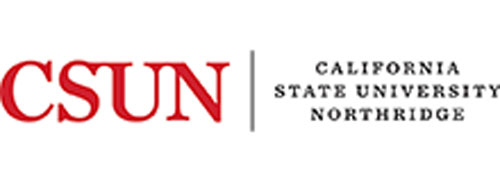
Entrepreneurship Innovation Incubator and Summer Accelerator

Length: 10 weeks (Accelerator)
Equity Requirements: Not stated
Format: Hybrid
Stage: Not stated
Website
- Accelerator program awarded the prestigious University Economic Development Association Award of Excellence for 2018
- Legal office hours provided by Southwestern Law as well as LegalZoom business documents and support
- Access to technical resources such as 3D printing, AI models, and expert assistance from student helpers in those fields
- Credits to Google Cloud and AWS as well as free Quickbooks software to get your books up and running.
CSUN offers two complementary programs, the Cii (CSUN Innovation Incubator) to help students turn their ideas into marketable products, and a 10-week summer accelerator program to help them launch companies to make it happen. The incubator has free business consulting and mentorship services as well as connections to both student and faculty innovators at CSUN. The accelerator portion awards two company representatives are awarded full-time paid internships to work on their company. You’ll also have a shot at funding sources at CSUN and from within the Los Angeles business community.
California State University – Sacramento Business Accelerator
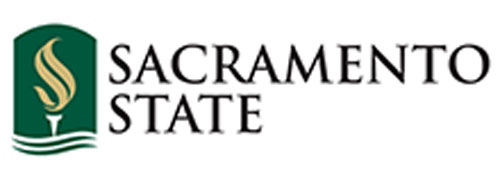
FourthWave Accelerator

Length: 16 weeks
Equity Requirements: None, $400 program fee
Format: Hybrid
Stage: Prototype/MVP (Minimum Viable Product) or strategic partnerships in place
Website
- Aimed at women-led tech companies, applicants must have at least one female or female-identifying founder
- Features on a leadership-first approach, analyzing styles and techniques through Enneagrams, Conscious Leadership, and Growth Catalyst systems
- Alumni have raised over $50 million in funding to date
It’s no secret that most incubators and accelerators are overwhelmingly male in makeup. Sac State has an answer for that with Fourthwave, an accelerator designed specifically to host female founders and innovators. The Fourthwave Accelerator is part of the Carlsen Center For Innovation & Entrepreneurships Launch resources, which also include a Lean Innovator Cohort and a Social Innovation Series, which are accessible to non-female led startups as well. The accelerator itself works on a three phase model, assessing leadership techniques first. It then moves into examining key business areas like market size, revenue potential, ROI, IP, and marketing and technical strategies to help develop strong fundamentals. Finally, you’ll prepare to pitch your revamped business to VCs and angel investors at the Investor Salon, part of Global Entrepreneurship Week. It’s a program that aims to change the narrative around gender equity, and you can be part of it.
California State University - Long Beach Business Incubator
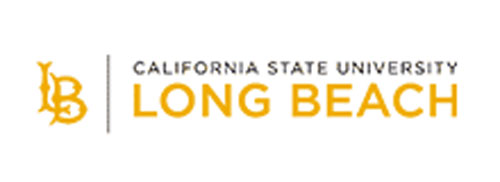
Apostle Incubator
Length: 3 months
Equity Requirements: None
Format: On-site
Stage: Any
Website
- Supports entrepreneurs both from CSULB students, faculty, and staff, and from the Long Beach community
- Designed as an inclusive community founded in active collaboration and an appreciation of different cultural backgrounds
- Culminates in a business ideation competition where the most likely candidates for success are picked
The Apostle Incubator is far less formal than most incubator programs. It’s broadly open to both CSULB students and staff as well as entrepreneurs in the Long Beach community. On Tuesdays during the three month program, you’ll join the cohort in going over topics like creativity, divergent thinking, target market analysis, the value map, and lean modeling. It’s a wealth of information and a support community to help shape your thinking around your own ideas.
Chapman University Business Incubators and Accelerators
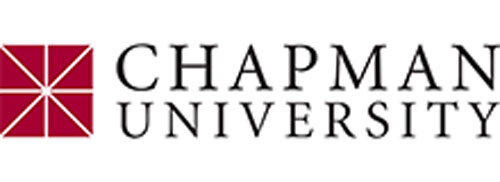
Incubator and Accelerator Programs

Length: 6 months (Incubator)
Equity Requirements: Free (Incubator)
Format: Online
Stage: Early/MVP (Minimum Viable Product)
Website
- While all types of startups are supported, a focus on the future of entertainment means that Disney is the #2 employer of graduates
- As a grantee of Accelerate California’s Inclusive Innovation Hub grant program, offers a focus on underserved community founders
- A diverse mentorship network and partners like the Orange County Business Council and K5 Ventures offer the resources to build business for success
The Leatherby Center for Entrepreneurship & Business Ethics has partnered with two Orange-based companies, 4th Sector Innovations and the WESEE Collective to put together the InterPhase Incubator to help founders hone their ideas into actionable startup form. The six month program covers every phase of business creation, from identifying market needs to crafting a killer pitch deck. The Instantaneous Accelerator is a follow-on that assists students who have already come up with ideas and products for a startup find the assistance, funding, and traction to turn their company into a going concern.
Santa Clara University Business Accelerator
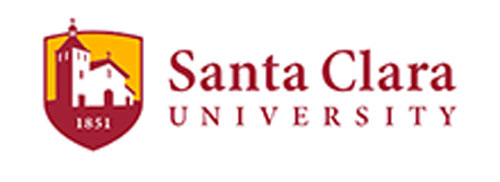
Bronco Ventures Accelerator - Leavey School of Business

Length: 4 months
Equity Requirements: None (Venture Fund recipients may give up a stake)
Format: Hybrid
Stage: Any
Website
- Offers a non-dilutive $5,000 cash stipend to assist founders getting their ideas off the ground
- The program continues for alumni with investment eligibility from the Bronco Venture Fund as well as networking events, ongoing advising, and access to free and discounted financial, marketing, and sales services
- Weekly speakers and panel sessions bring in outside investors and industry experts to offer their view of markets
- A focused business development curriculum is based on best practices from Silicon Valley accelerator programs
- Comes with two years of free business banking and more than $120,000 win credits from Google Cloud, AWS, and discounted Salesforce services
Run by the Leavey School of Business’ Ciocca Center for Innovation and Entrepreneurship, this accelerator takes on founder from any industry at any level of startup. In some ways, it’s an accelerator that works like an incubator: free accounting services, two years of free business banking, and a free 409A valuation gets the ball rolling for early-stage startups. The program concludes with Demo Day in front of hundreds of investors, giving startups the ability to instantly fund their ideas to fruition. The homegrown Bronco Venture Fund offers another bite at the apple, with SCU grads coming together to support current students through significant early stage and ongoing investments.
Loyola Marymount University Business Incubator
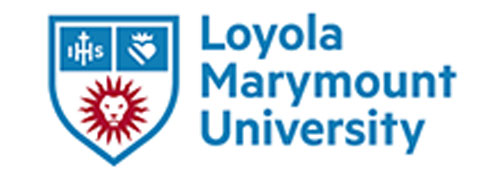
Business Incubator

Length: 1 semester
Equity Requirements: None
Format: On-site
Stage: Ideation
Website
- Offers access to a workspace for brainstorming and product development
- Receive guidance from other entrepreneurs, subject-matter experts, and tap into knowledge from alumni and faculty
- Student participants receive a small amount of funding to get started
- Features advisors from companies like Disney, SalesForce, GlobalWide Media, and Olivera Trading
This is an incubator masquerading as college course through LMU’s College of Business Administration that gives student teams a taste of the support they can access to get their company started. Recent graduates are also accepted to the program, which offers space in the Business Innovation Zone on campus and taps into the entrepreneurial culture that flows across the area. Teams can include non-students, but at least one member must be an LMU student or graduate. The entry idea must have high potential, be feasible, and socially responsible.
San Francisco State University Business Incubator
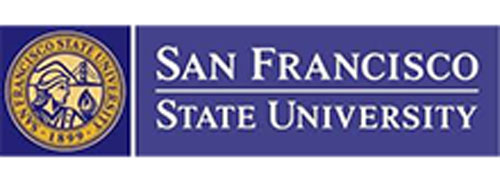
IncuGator | Lam Family College of Business

Length: 12 months
Equity Requirements: None
Format: Hybrid
Stage: Ideation
Website
- Although it’s not formally a college course, credit can be granted to students in the program
- Resources are available to help with legal advice, web hosting, UI and UX design, and financial modeling and budgeting
- Network with successful SF State alums as well as Bay Area entrepreneurs and Angle investors at social happy hours
- Coaches from community partners, faculty, and engaged alumni offer a wealth of experience across industries and business models
You can expect to spend your year in the IncuGator building a prototype or Minimum Viable Product, testing your model, networking with potential customers and advisors, and building an operational and financial model to turn your product into a functioning business. At the end of the year, you’ll be set for the annual Innovation Pitch Competition that unveils your idea in front of the public, alumni, other students, and potential investors. Only students are allowed entry to the program, and you must maintain active enrollment status throughout the entire year.
University of San Diego Business Accelerator
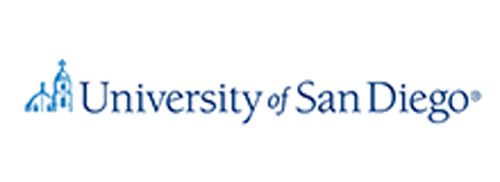
The Brink

Length: Variable
Equity Requirements: None
Format: Hybrid
Stage: Any
Website
- Named the #1 startup accelerator in San Diego by the San Diego Business Journal
- Designated by Accelerate CA as an Incisive Innovation Hub, supporting underserved entrepreneurs in an inclusive innovation ecosystem
- Offers free and confidential one-on-one advising and training to both students and the San Diego entrepreneur community
- Assistance from the USD Legal Clinical as well as local law firms offers professional advising in matters of corporate law and IP
- Networking and workshops offered in both English and Spanish language forums
- A special 9-week Lean Essentials Sprint program can accelerate you even faster toward realizing your business goals
The Brink is a specialty center in the San Diego & Imperial Small Business Development Center Network, fostering and accelerating innovation founders in tech and life sciences. You will find advising and workshops including market research, legal services, pitch deck building, and lean startup creation. With an a la carte approach to many of its services, this is an accelerator that can deliver support to both pre-ideation startups and established firms looking for funding and strategies to jump to the next level of growth.
Dominican University of California Business Accelerator
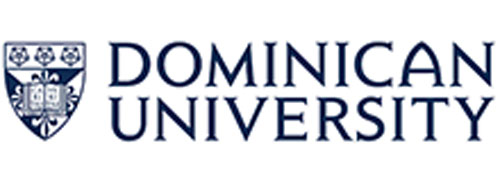
Venture Greenhouse

Length: 4-12 months
Equity Requirements: None, $50 monthly fee
Format: On-site
Stage: Early
Website
- Aimed at environmentally and socially beneficial ventures started by DU students and others in Marin County and North Bay
- Delivers weekly coaching and training sessions, business planning, legal counsel, and HR planning support
- Access to capital offered by the program’s network of investor contacts
VG is a uniquely environmentally-focused accelerator program partnered with Dominican University of California, and run by the cofounder of the groundbreaking DU GreenMBA in sustainable business. An informational mixer sets the stage for a less competitive entry than many California accelerator programs. With a focus on doing the right thing for the world by fostering companies with innovative approaches to environmental problems, it’s a unique opportunity for students and founders in the North Bay.
California Lutheran University Business Incubator
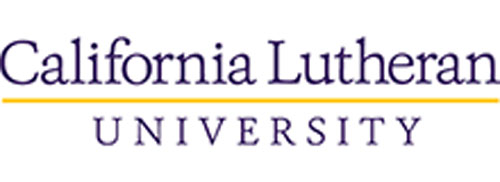
Dorfman Incubator Grants

Length: Maximum 2 years
Equity Requirements: None
Format: Virtual
Stage: Pre-seed, no more than $2M in revenues or $1M outside investment
Website
- A maximum grant amount of $100,000 offers plenty of runway for early stage startups to get going
- An exclusive contact assists you through the process of executing the grant to answer all your questions and smooth over administration
- Grantees also have support from Hub101, the premier startup community in the Conejo Valley and Ventura County
Billed as “generous funding, with an educational twist” the Dorfman Grants are primarily a way to deliver grants to early-stage startups while offering a range of supportive services and information. Participants must be Cal Lutheran students or recent graduates, preferably as co-founder but at a minimum as an important contributor to the startup. The financing can be used for any purpose, but requires that a Cal Lutheran student intern is hired to assist, and that you return to share the lessons you learned with future cohorts. Naturally, that means you will also benefit from the knowledge and wisdom of previous grantees in your own journey.
Westcliff University Business Incubator
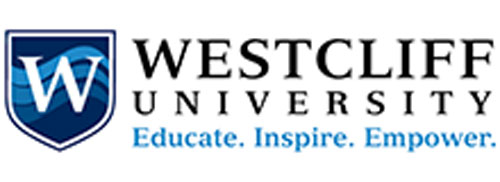
IGNITE Incubator

Length: Rolling
Equity Requirements: Not stated
Format: Not Stated
Stage: Any
Website
- Hosted at the Innovation Hub center of excellence offering resources to all entrepreneurs on campus
- The Entrepreneurship-in-Residence allows one-to-one mentorship and coaching services for practical help and advice
- Tailored support and guidance includes real-world experience in active companies to help ignite your own entrepreneurial ideas
A subset of Westcliff’s renowned SMART (Strategic Management of Applied Research and Technology) MBA consulting capstone offering, IGNITE offers a dynamic and intensive lab for MBA and DBA students to turn their ideas into real-world startups. An Entrepreneur Center, Technology Center, and ongoing series of Distinguished Innovator speakers keeps the flow of ideas coming. The incubator has a unique approach to fostering new startups by connecting them with older startups—the school runs an e-commerce platform developed by previous SMART capstones that continues to be run by incoming cohorts, which hands it off again to the next.
There’s no one-size-fits-all answer to whether you should pursue an accelerator or incubator program at all, or which you should pick if you do decide this is the right way to try to get your ideas off the ground. But the lack of one-size-fits-all answers in the world of business is exactly why you want an MBA from one of California’s world-class business schools: the analytical and problem-solving tools you take away will help you come to the right conclusion about how to make your groundbreaking idea a reality.
